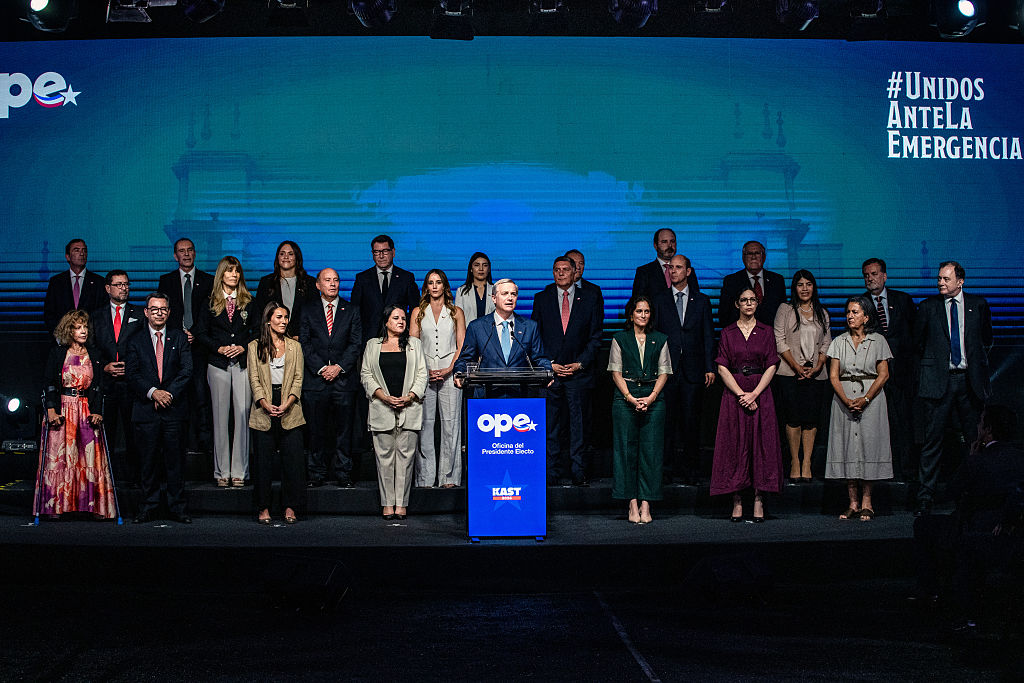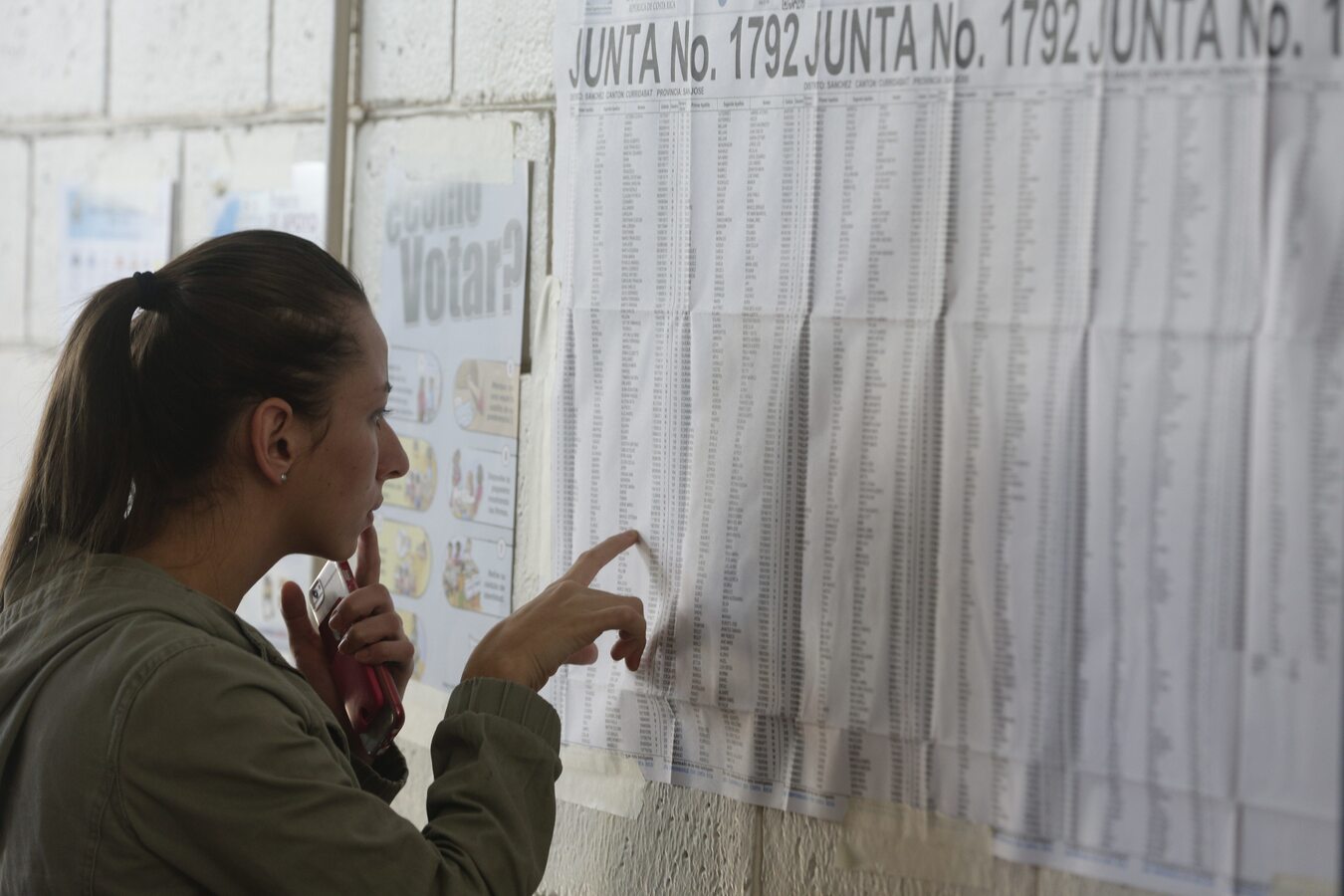With Primaries Fast Approaching, Chile's Parties Name Their Candidates
With Primaries Fast Approaching, Chile's Parties Name Their Candidates
May 1 marks the deadline for candidates to register for Chile’s upcoming presidential primaries, as parties in the country’s two main political blocs confirm final candidates.
| Join AS/COA in New York or via live webcast on May 2 for an expert panel on Chile's 2013 elections. |
May 1 marked the deadline for candidates to register for Chile’s November 17 vote in an election round that will see several new “firsts.” After four years governed by the administration of President Sebastián Piñera, Chileans will choose a new head of state, senators and representatives, and for the first time, vote directly for regional legislators. These will be the first presidential elections under the new voter registration rules, in which all eligible citizens are automatically enrolled but voting is voluntary. Party primaries, also a new function of the Chilean electoral system, are slated to take place June 30. Candidates must register at least 60 days beforehand, making May 1 the cut-off date. But, just before the deadline, a sudden shake-up left the governing conservative coalition without one of its leading candidates—former mining minister Laurence Golborne.
The primaries will boil the contest down to a two-person race between the principal party blocs: the left-leaning Concert of Parties for Democracy (better known as the Concertación) and the governing conservative Coalition for Change. Golborne was considered a frontrunner for the latter coalition, given his rise in popularity as Piñera’s mining minister, when he managed the successful rescue of 33 miners in 2010. But Golborne withdrew his candidacy as the Independent Democratic Union (UDI in Spanish) candidate April 29 following reports he did not publicly declare offshore bank accounts in the British Virgin Islands, a tax haven. This came after an April 24 Supreme Court ruling fining Chilean retailer Cencosud $70 million for illegally hiking customer fees while under Golborne’s watch as CEO of the company.
With Golborne out of the race, some observers see former President Michelle Bachelet’s candidacy in a strengthened position. “This leaves [the governing coalition] in a situation with diminished real opportunities of challenging Michelle Bachelet, who has been consolidating as a real alternative,” the University of Valparaiso’s Guillermo Holzmann told the Associated Press.
The two coalitions have multiple candidates representing constituent parties, but only one can be chosen to represent each bloc at the polls on November 17. AS/COA Online presents a brief rundown of the top contenders from each party.
Coalition for Change (formally Alliance for Chile)
- Andrés Allamand. The candidate for one of the two main parties in the coalition, the Renovación Nacional, trained as a lawyer and was defense minister under Piñera until announcing his candidacy on November 5, 2012. The former rugby player’s vocal criticisms of Golborne following the Cencosud scandal created public rifts between the two conservative parties in the governing coalition.
- Pablo Longueira. The former minister of economy, development, and tourism under the Piñera government and minister of housing during the military dictatorship was nominated on April 29 following Golborne’s resignation as the candidate for the UDI, the other main party in the conservative coalition. Longueira, a founding member of the UDI, is considered a strong and popular figure on the right who has helped his party grow in popularity since the return to democracy.
Concertación
- Michelle Bachelet. The former president of Chile from 2006 to 2010 resigned as head of UN Women on March 15 and announced her candidacy for the Socialist Party and the Party for Democracy on March 27 in Santiago after months of speculation. The former pediatrician and political prisoner—who finished her first term as president with a 78 percent approval rating—is widely expected to win the Concertación’s primaries and lead the bloc to victory in the November elections. She cited resolving the ongoing fight over the country’s education system, as well as narrowing income inequality, as her main policy objectives for a new term in office.
- José Antonio Gómez. The Social Democratic Radical Party candidate who served as justice minister in the government of President Ricardo Lagos is now a senator for the region of Antofagasta. The candidate is running on a pro-education reform and environmentalist platform.
- Claudio Orrego. The policies of the official candidate for the Christian Democratic Party overlap with much of the center-left coalition’s platform, though Orrego distinguishes himself through having a grassroots perspective stemming from his time as mayor of Peñalolén, a working-class municipality.
- Andres Velasco. Running as an independent within the Concertación, Bachelet’s former finance minister was much praised for his handling of the Chilean economy during the 2008 global financial crisis. Velasco is campaigning on a platform of change and political renewal for the center-left coalition.
Learn more:
- Visit the Chilean government’s elections website.
- Read a full list of presidential contenders.








